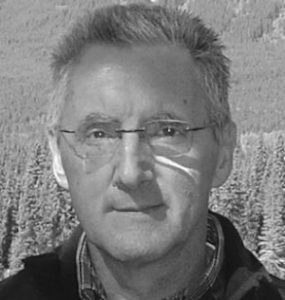
Wolfgang Wefelmeyer
We are saddened to report that Wolfgang Wefelmeyer lost his life after a road accident in January 2024, at the age of just 74.
Wolfgang Wefelmeyer spent most of his career at the University of Cologne in Germany. He studied Mathematics there and stayed on as a postgraduate under the supervision of Johann Pfanzagl. After completing his doctoral dissertation in 1979, he remained at Cologne for 15 years before moving to a professorship at the University of Siegen. He returned to Cologne as Professor of Mathematical Statistics in 2003, and retired from teaching in 2014.
Wolfgang made many professional and personal friends at conferences and during research visits, including a year at Johns Hopkins University (1987–88) and a year at Binghamton University (2002–03).
He was an expert in asymptotically efficient estimation in the Hájek–Le Cam sense. He always stressed the importance of incorporating the structure of a model into decision-making. Thus his research dealt in large part with the study of plug-in estimators, but he also addressed issues of misspecification.
In September 1987, Wolfgang began a visit to Johns Hopkins University’s Department of Applied Mathematics at the invitation of then-Chair Robert Serfling. Visiting at the same time was Priscilla (Cindy) Greenwood. Cindy was a probabilist with experience in the area of sample path properties of stochastic processes; Wolfgang was an expert in efficiency. The question naturally arose: what about efficient estimation for stochastic processes?
Baltimore was the starting point for a collaboration and friendship that lasted for decades. Wefelmeyer and Greenwood initially looked at asymptotically efficient estimation in the context of semi-martingales. This family encompasses all sorts of stochastic processes. Resonance among statisticians was cool, however, so the pair shifted their focus to efficient estimation for particular processes under particular conditions. This included counting processes, Markov chains, multivariate point processes, semi-Markov processes, random fields, partially specified models in various contexts, estimation near critical points, misspecified models, estimation from Markov Chain Monte Carlo data (with Ian McKeague), and estimating equations (at the instigation of Vidyadhar Godambe). Over the years this joint endeavour led to 25 journal papers, as well as book chapters and numerous conference contributions.
In 1997 a group around Greenwood at the University of British Columbia was awarded a major, three-year “large topic grant” to study “Crisis points and models for decision” — in our terms, stochastic models with critical points — and Wefelmeyer was a major participant. Among the postdocs taking part was Ursula (Uschi) Müller. The “Crisis Points Group” including Wefelmeyer, Greenwood, and Müller, published a number of joint papers, including work on stochastic resonance.
Most of Wolfgang’s other contributions to mathematical statistics arose within his deep and long collaboration with Anton Schick. They began with the estimation of the invariant laws of semiparametric Markov chains and linear processes, then focused on the estimation of densities of sums of independent random variables and of stationary and higher order transition densities for time series models with independent innovations. They established root-n consistency of plug-in estimators of such densities in various norms such as supremum and L1 norms, obtained functional central limit theorems for these estimators in corresponding function spaces, and addressed efficiency issues. This work also led to more efficient predictions for related time series models. Together with Uschi Müller they focused on residual based inference, which was motivated by the Crisis Points Group research on stochastic resonance at UBC in the late 1990s. This work led to the construction of efficient estimators of error distributions and functionals thereof in various regression and autoregression models.
Wolfgang Wefelmeyer wrote over 100 journal articles and co-authored two books. He remained active until his death and further papers are still to appear. He was associate editor for several respected journals and a longstanding member of national and international professional associations.
Wolfgang leaves behind his partner, Martina, and his brother Thomas. His colleagues, collaborators and friends around the world will also miss him sorely. He was a modest and mostly quiet man who had a keen eye for both the sublime and the absurd. He was a tenacious researcher, an inspiring teacher, a generous mentor, and a dependable friend.
—
Written by Priscilla (Cindy) Greenwood, University of British Columbia; Anton Schick, Binghamton University; Ursula (Uschi) Müller-Harknett, Texas A&M; and Ian Harknett